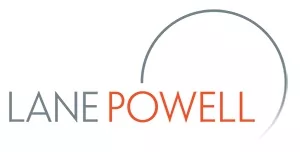This morning, as is my habit, I sifted through overnight email while enjoying the friendly hospitality of the Washington State Ferry system. And this morning, as is customary, the overnight email contained a fair number of messages which might be fairly described as spam. But one particular message caught my eye. It was an Indiegogo announcement about a Virginia-based distillery that was soliciting investment.
I've written on this topic multiple times – I am a securities lawyer by training, after all – but the message (the fact that it arrived, not the specifics of its content) prompted me to think that a reminder of a few key points were probably worthwhile. So with that as background let me throw out a couple of quick considerations for anyone who might be considering bringing investors into their empire of hooch.
First, note that just because changes to securities laws have recently liberalized the ability to seek investment through crowdfunding platforms like Indiegogo does not mean that there are no rules to worry about. That Indiegogo announcement is just as much a general solicitation of investors as if the distillery had taken out a full page ad on the front page of its local newspaper. That means that the distillery has most likely decided to go down one of only a couple of paths for its securities offering – either the Regulation Crowdfunding route or the Securities Act Rule 506(c). In either case, there are specific rules to be followed.
Those rules aren't entirely intuitive – and it can be easy to make a misstep. So before you launch this process make sure to talk with your counsel about how to proceed. What you do today with respect to your potential offering may make a difference in terms of what you are permitted to do tomorrow – and it would be a shame to inadvertently limit your future options simply because of haste today.
Second, please remember that just because rule changes have made it easier to offer securities does not mean that any of the anti-fraud provisions related to securities offerings have changed. They have not.
Regardless of how you may structure your securities offering, it remains illegal to make a material misstatement (or omission) in the context of your sale of the securities. For a misstatement – just think "lie". You can't lie to people who are buying your stock, membership interests, promissory notes, or whatever other kind of security you might construct. And for omission – well that's basically a kind of lie as well but it goes a bit beyond that.
Suppose, for example, you knew that you were about to lose the lease for your distillery's physical location and that you were unlikely to be able to find space as cheaply in another location. If the increase in likely rent would be material (i.e., it would make a meaningful difference in your finances or business prospects), then you must tell your prospective investors about the situation with the lease. But this is just one potential example. There are others – which means that when you are getting ready to launch your offering you should sit back with a pen and paper (and possibly a cocktail) and list out for yourself all the things that make you think that your business might fail. Using that list, you then create a list of the specific disclosures that you think need to be provided to investors. And then you make those disclosures.
Third – and last for purposes of this writing – please don't forget that if you take in additional investment, you need to remain mindful of TTB and state rules relating to ownership of licensees. Depending on the size and nature of your offering, you may need to update your licenses. Failure to do that can be extremely costly.
Originally published in Hooch Law, April 2018
The content of this article is intended to provide a general guide to the subject matter. Specialist advice should be sought about your specific circumstances.

